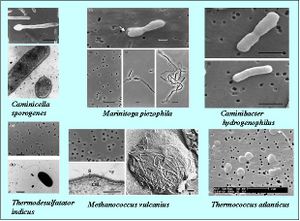Xylaria hypoxylon: Difference between revisions
(Created page with "{{Uncurated}} ==Classification== Domain/Superkingdom/Kingdom; Phylum; Class; Order; Family [Others may be used. Use [http://www.ncbi.nlm.nih.gov/Taxonomy/ NCBI] link to find...") |
m (Somua002 moved page Abigail Somuah to Xylaria hypoxylon) |
(No difference)
| |
Revision as of 09:31, 22 July 2013
Classification
Domain/Superkingdom/Kingdom; Phylum; Class; Order; Family [Others may be used. Use NCBI link to find]
Genus Species
Description and Significance
Give a brief description of the microorganism and explain why you think it is important. How does it relate to the other organisms in its phylum (bacteria and fungi) or group (archaea, virus, protist). Use the following for each reference in text (change number accordingly)--> [1]
Structure, Metabolism, and Life Cycle
Interesting features of its structure; how it gains energy (how it replicates, if virus); what important molecules it produces (if any), does it have an interesting life cycle?
Ecology and Pathogenesis
Natural habitat (soil, water, commensal of humans or animals?)
If relevant, how does this organism cause disease? Human, animal, or plant hosts? Important virulence factors, as well as patient symptoms.
References
[1] EXAMPLE ONLY. REPLACE WITH YOUR REFERENCES. Takai, K., Sugai, A., Itoh, T., and Horikoshi, K. 2000. "Palaeococcus ferrophilus gen. nov., sp. nov., a barophilic, hyperthermophilic archaeon from a deep-sea hydrothermal vent chimney". International Journal of Systematic and Evolutionary Microbiology. 50: 489-500. http://ijs.sgmjournals.org/cgi/reprint/50/2/489
Author
Page authored by _____, student of Mandy Brosnahan, Instructor at the University of Minnesota-Twin Cities, MICB 3301/3303: Biology of Microorganisms.

